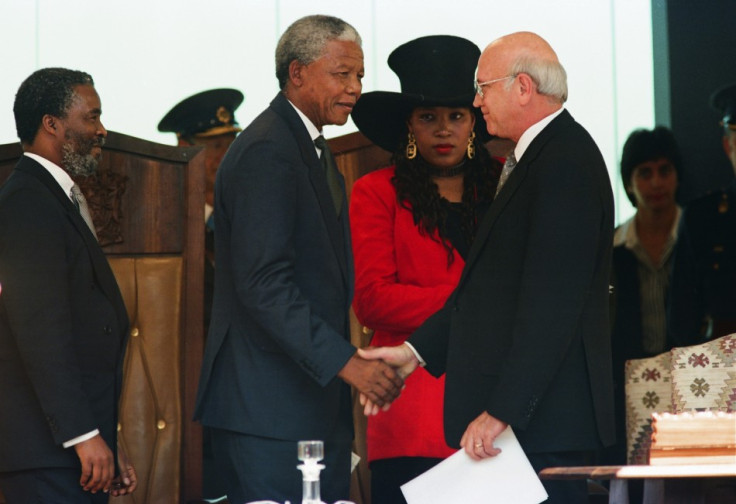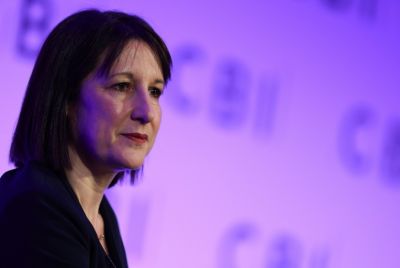Mandela v de Klerk: Relationship of Strained Grace with Nobel Prize Partner

Nelson Mandela shared his Nobel Peace Prize with his political rival of the post-apartheid era, the former South African president F.W de Klerk, with whom he was known to have a courteous yet often-turbulent relationship.
Mandela had worked with his predecessor de Klerk to negotiate a long-awaited and hard-fought end to the apartheid state, for which both were jointly awarded Nobel Peace Prize in 1993.
"Although we were political opponents, and although our relationship was often stormy, we were always able to come together at critical moments to resolve the many crises that arose during the negotiation process," de Klerk said in an interview with PBS.
The two men were reported to have accepted the Nobel Prize with a strained grace, characteristic of their complex relationship.
When asked what he thought was the contribution of the white President de Klerk in deserving the prize, Mandela had retorted "Just ask the Nobel Peace Prize Committee".
The public reaction in South Africa to Mandela winning Nobel Prize was repressed by a general public feeling that peace was still elusive in the country, as the political violence continued well into the 1990s.
The two polarized leaders competed for public attention in the country's troubled years.
Around the time, South African army had raided suspected black terrorist hideout in which five unarmed teenagers were killed.
De Klerk who had authorized the raid contended that the weapons and documents seized at the house justified killing the 'terrorists' as they belonged to a militant guerrilla group. However, the incidence drew sharp criticism from public as no attempt was made by the army to arrest the suspects.
The Norwegian Nobel Peace Prize committee decided to overlook the controversies surrounding the leaders and instead focused on the progress the two men had made to arrive at an amicable way out of the apartheid era.
"These are not saints," Francis Sejersted, the chairman of the Nobel committee, had said. "They are politicians in a complicated reality and it is the total picture that was decisive."
Klerk remembers Mandela as a great leader and an astute politician. He recalls that they had a very positive relationship in the beginning, but as the country continued to be divided on racial lines and violence their relationship hit hard times.
A negotiating forum, Convention for a Democratic South Africa (CODESA) was set up in 1991, but it failed to expedite the peace process in the country. Both leaders blamed each other for failure to curb the violence.
"In the initial period up to CODESA, in December of that year, the relationship between us was never really strained. The underlying cause, which caused strain, was his approaches to me whenever an incident occurred in which the police were involved. His suspicion that somehow or another I was not doing enough, or I didn't have control, and that we were not giving enough attention to his concerns about how violence is managed", de Klerk told PBS.
"I, in the later stages, had a many confrontational discussions with him", he added.
However, de Klerk and his staff have several fond memories of the iconic leader. Klerk's staff reportedly said they will never forget the day they met Nelson Mandela for the first time.
Apprehensive of Mandela's intentions on reigning in as the first black President, they expected to be kicked out of the ceremony at the drop of a hat.
But a pleasant surprise awaited them. The staff was to witness Mandela's gracious attitude as he moved around the room shaking hands and showering personal attention on every single person present in the room.
To the staff's great relief, Mandela ended the meeting by assuring the white public of a secure and peaceful future.
© Copyright IBTimes 2024. All rights reserved.






















